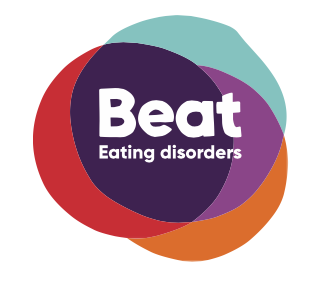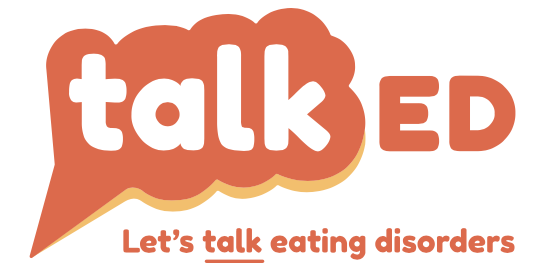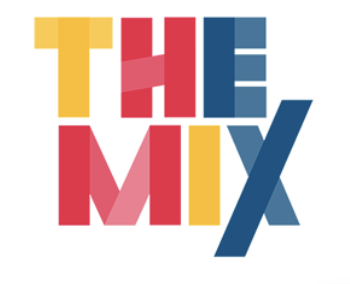Eating difficulties
As your body develops you can feel pressure from friends, family and social media to look or be a certain way. It is normal to like some bits of the way you look and not other bits. There's no right or wrong way to look. Everyone's body is different.
Everyone eats in different ways. You might eat more one day and be less hungry another day. This is normal. Sometimes how you feel about food and eating can become a problem.
Signs of an eating difficulty include:
- Focusing a lot on controlling what or how much you eat
- Having urges to get rid of the food from your body
- Feeling unable to stop yourself from eating
- Using food to manage your emotions
- Feeling guilty for enjoying or eating food
Eating difficulties are common and they can affect anyone. Your weight or appearance does not determine if you have a problem.
 Beat is the UK’s eating disorder website. They offer support and information about eating disorders.
Beat is the UK’s eating disorder website. They offer support and information about eating disorders.
Causes of Eating Difficulties
Many things can cause eating problems. Struggling with food or eating is never your fault.
You may develop an eating problem when things don’t feel right in other parts of your life. Some possible reasons are:
- Coping with feelings of sadness, worry or stress
- Life stressors such as exams, bullying, friendship or family relationship difficulties and bereavement or loss
- Personal factors such as having low self esteem, anxiety, depression, setting high personal standards, or identifying as LGBTQ+
Experiencing any one of these things does not necessarily mean that you will develop an eating disorder or difficulty. Some eating problems can be triggered by other mental health conditions.
Some autistic people can struggle with certain textures or food.
Symptoms of Eating Difficulties
Here are some examples of eating behaviours you may struggle with:
- Eating only certain types of foods, not feeling hungry, or eating to cope with negative feelings
- Obsessing about your body shape or being afraid of gaining weight
- Constantly thinking about food and finding it hard to think about anything else
- Making yourself sick or using laxatives (drugs that make you poo more) to get rid of food from your body
- No longer enjoying eating socially or leaving the table quickly (to be sick or hide food)
- Feeling like eating is bad or that you should feel guilty for eating
- Limiting the calories or amount of food that you eat to help you feel more in control of certain situations
- Exercising a lot more than usual or feeling like you have to exercise after you’ve eaten
Not everyone who has an eating difficulty will experience these. If you are experiencing some of these behaviours it does not always mean that you have an eating difficulty, but it is important to get help and advice.
It is common to not realise you have a problem. Other people might say they are worried about you. This could make you feel angry and frustrated.
If you are worried please reach out for help. Speak to your doctor or a trusted adult.
What is an Eating Disorder?
Some eating problems can become serious mental health conditions. An eating disorder is a serious mental illness. It is when you develop thoughts, feelings and eating behaviours which take over your life and can make you very unwell. You need the right help to recover so it is important to ask for help.
There are different types of eating disorders:
Anorexia nervosa: Trying to keep weight low by limiting calories, amount of food, exercising or all of these
ARFID (Avoidant Restrictive Food Intake Disorder): Avoiding or limiting certain foods for a variety of reasons including sensory sensitivity, limited interest in food or worries about the consequences of eating
Binge eating disorder: Uncontrollable eating of large amounts of food
Bulimia nervosa: Uncontrollable binges followed by purging
OSFED (other specified feeding or eating disorder): Disordered eating which doesn’t fit one of the other types
Pica: Eating non food items
All eating disorders are treatable and a full recovery is possible. It is important to notice that you might be having a difficulty and ask for help and advice as soon as possible. Health services take eating disorders very seriously and they will make sure that you are seen as soon as possible.
Impact of Eating disorders
Eating disorders can impact:
- Physical health, for example to you may become more tired. If you are female your periods might stop. You may need to be admitted to hospital
- Emotions, for example you may be more tearful or irritable
- Education, for example you may have difficulty concentrating or remembering
- General daily living for example hanging out with friends or spending time with family
- Taking part in activities
What can you do?
- Get support early. There is help available and you can recover
- Talk to someone you trust
- Speak to your GP for advice
- Avoid social media
- Be mindful that some TV programmes, films, or books may be triggering
- Stick to regular meal times
- Try to be honest with yourself and other people about what you are, or are not eating
- Refer yourself to your local eating disorder service
- Leeds Children and Young Peoples Eating Disorder Service works with children and young people under 18 who may have a range of eating problems. Referral is through Leeds MindMate Single Point of Access (SPA). If you are under 18, or if you are a parent of someone aged 5 to 17, you can ask for MindMate SPA to help find support via our online referral system or by calling the SPA team during office hours on 0300 555 0324.
- Bradford and Craven children and young people’s community eating disorders service, Freedom team, offers support to young people, under 18 years of age, and their families living in Bradford, Airedale, Wharfedale or Craven who are tackling an eating disorder. The Freedom team is based in Keighley, is available Monday to Friday 9am to 5pm. You can call 01535 661531 or be referred by your GP or School nurse. Outside of these hours First Response (0800 952 1181) can give advice in any mental health crisis or, if there are urgent physical issues, the local accident and emergency service at Airedale General Hospital or Bradford Royal Infirmary may be contacted.
- Wakefield CAMHS can be contacted by young people aged 16 and 17, parents and carers, or other professionals. You can request support online or call them on 01977 735865 (9am to 5pm, Monday to Friday). For urgent support that cannot wait until the next day, you can contact the CAMHS ReACH team (previously crisis team), call 01977 735865.
- Kirklees Thriving Kirklees provide mental health support, including CAMHS, in Kirklees. You can request support online or call them on 0300 304 5555
- Calderdale referral to specialist eating disorder service is through CAMHS. You can request support online or call them on 01422 300 001 (9am to 5pm, Monday to Friday)
Supporting a friend with an eating problem
- Listen to them
- Encourage your friend to speak to their GP or a trusted adult
- Let them know about organisations like Beat who can support them
- Don’t comment on how much or how little they are eating
- Do things with them that don’t involve food for example watching a film
- If you are worried you don’t have to keep their secret. It is important they get help. Speak to a trusted adult
- Make sure you have someone you can talk to about how you are feeling. Supporting someone can affect your own wellbeing and mental health
YoungMinds has a guide on supporting a friend with their mental health Supporting a Friend With Their Mental Health | YoungMinds
Further support

Food for Thought. Food can be fun or sometimes a bit tricky. Everyone has different experiences and preferences, and that’s okay. Whatever your relationship with food, we’ve got tips to help make mealtimes easier. Explore booklets, videos, and audio resources, all shaped by young people, to guide you through food choices
![]() Leeds Mindmate has information for if you are worried about an eating disorder
Leeds Mindmate has information for if you are worried about an eating disorder
![]() Young minds has information, help and advice about eating disorders and other subjects
Young minds has information, help and advice about eating disorders and other subjects
 Beat is the UK’s eating disorder website. They offer support and information about eating disorders. Call their helpline on 08088010677 (available Monday to Friday 1pm to 9pm, Saturday, Sunday and Bank Holidays 5pm to 9pm). They have a webchat service (One-to-One Web Chat). They also run a chat group for people under the age of 25 (Phoenix)
Beat is the UK’s eating disorder website. They offer support and information about eating disorders. Call their helpline on 08088010677 (available Monday to Friday 1pm to 9pm, Saturday, Sunday and Bank Holidays 5pm to 9pm). They have a webchat service (One-to-One Web Chat). They also run a chat group for people under the age of 25 (Phoenix)
 Talk ED offers support to anyone affected by eating disorders
Talk ED offers support to anyone affected by eating disorders
![]() ARFID Awareness UK provides information, advice and support to people experiencing ARFID
ARFID Awareness UK provides information, advice and support to people experiencing ARFID
 The Mix is there for you whether you want a quick chat or more focused help. For young people with mental health, relationships, work life, school life, depression and any other issues all year round. Call 0808 808 4994 between 4pm and 11pm every day, email them, chat one to one online, sign up for free counselling or text THEMIX on 85258 for free 24 hours a day crisis support.
The Mix is there for you whether you want a quick chat or more focused help. For young people with mental health, relationships, work life, school life, depression and any other issues all year round. Call 0808 808 4994 between 4pm and 11pm every day, email them, chat one to one online, sign up for free counselling or text THEMIX on 85258 for free 24 hours a day crisis support.




